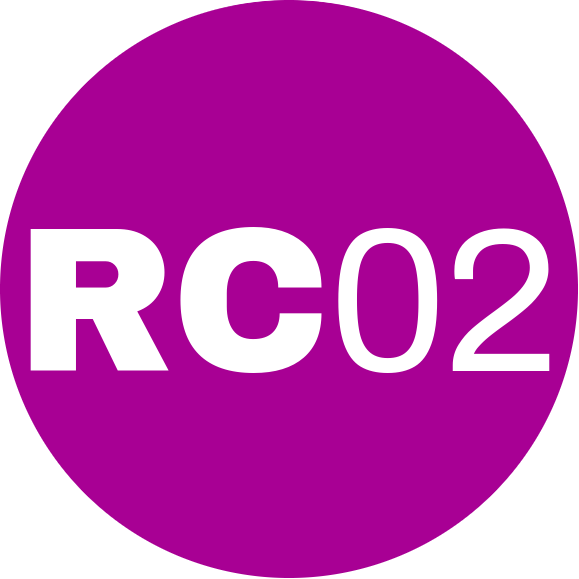Professor of Comparative Sociology and Japanese Society, The University of Duisburg-Essen,
Email: karen.shire@uni-due.de
The IV ISA Forum in Rabat Morocco is the largest in the history of the RC02, with 28 sessions, seven joint sessions led by other RCs, and two integrated sessions in the conference program. While actual numbers of participants may change at the time of registration, the full program of sessions is likely to be maintained, as distributed papers are moved into oral presentations, and oversubscribed panels are given an additional session. Since taking office at the conclusion of the World Congress in Melbourne in July 2023, we have recruited approximately 30 new members to the research committee, but most importantly the expansion of our membership in all world regions ensures diverse perspectives in address a broader range of economic and social challenges globally (See the profiles of some of our new members in this issue).
The global reach of the RC02 Forum program reflects this trend and is driven by the increasing diversity of the executive board and the program committee for Rabat. Session participants are drawn from all world regions, and several invited sessions initiated by program committee members are dedicated to topics of great importance to sustainable economic development and non-European/non-North American regional developments. Continuing a theme highlighted in the RC02 interim conference in Duisburg, Germany in July 2024 (see Gottfried and Shire report in this issue), one invited session is dedicated to the new theoretical paradigm introduced by Rina Agarwala on Migration Development Regimes, with a focus on the historical-empirical case of India. A continuation from the 2023 World Congress is an invited session on the Global Social Protest Data Base 1851 – 2023, designed as a panel of data base participants discussing the results for world-economic change and waves of social protest, led by Corey Payne and Beverly Silver. Another continuation from the world congress in Melbourne is the session organized by Ece Kocabıçak on the Political Economy of Violence, extending the theoretical work on violence and society by past RC02 President Sylvia Walby with presentations on India, South Africa, Kurdistan and Iran. Another invited session navigates the theoretical advances in studying authoritarian capitalisms under the title of Insights from Variegated Perspectives on Labor, Gender and Social Economies, organized by Kaxton Siu, with presentations of original research on sub-Saharan Africa, East and Southeast Asia. A further invited session returns to a topic that has long occupied economic and political sociologists -- revolutions. Organized by Heidi Gottfried and Valentine Moghadam this session revisits debates and trajectories in research on revolutions.
The RC02 program in Rabat, as in the past, highlights important new books by our members in Author-Meets-Critics sessions. A new book by Jihye Chun and Ju Hui Judy Han titled Against Abandonment: Repertoires of Solidarity in South Korean Protest will direct our attention to our program for the 2026 World Congress in Gwangju, South Korea through its symposium format. The association of neo-liberal globalization with violence in the economy and extreme exploitation in labor relations is the topic of the recent volume by Sylvia Walby and Karen Shire, Trafficking Chains: Modern Slavery in Society, with critics Margaret Abraham and Chris Tilly.
Integrated into the RC02 Forum program in 2025 are two sessions dedicated to early career researchers, organized by Sandhya AS who participated in the workshop for young scholars at the World Congress in 2023 (see report in the Spring 2024 newsletter by Michelle Hsieh).
The open sessions in the RC02 program advance some of the leading research areas that have come to form the profile of the study of economy and society in the 21st century: sustainable and just development, care work, financialization, migration, climate and environmental change, and new perspectives on Marxism, socialism. These sessions all include research and scholarship from medium and low-income regions of the world. Several panels on these and other topics carve out new research directions, such as the sessions on the wealthy, examining their lifestyle impacts on climate change, on digitalization in the form of platform economies as a continuation of neo-liberal economic change, and on disaster socialism, exploring whether alternatives to capitalism are possible amid environmental disasters.
A total of seven joint and two integrated sessions align our research committee with the activities of 14 other RCs and 3 working groups. Of note is the continuing intensive cooperation with the Working Group on Violence and Society, with RC07 Futures Research, RC17 Organizations, RC23 Science & Technology, RC30 Sociology of Work, RC44 Labor Movements, and RC24 Environment & Society.
Participants from ISA country categories B & C and those in precarious employment are eligible to apply for registration grants. Research Committee 02 will also open a call for travel grants for these researchers soon. Participants are invited to join a member dinner following the business meeting in Rabat, details of which, along with the program for the two integrated sessions, will follow in Issue 1 of the 2025 newsletter.
Join us at IV ISA Forum in Rabat to explore groundbreaking ideas and connect with leading minds shaping the future of economy and society! Stay engaged with the RC02 to be part of transformative discussions and impactful collaborations.

